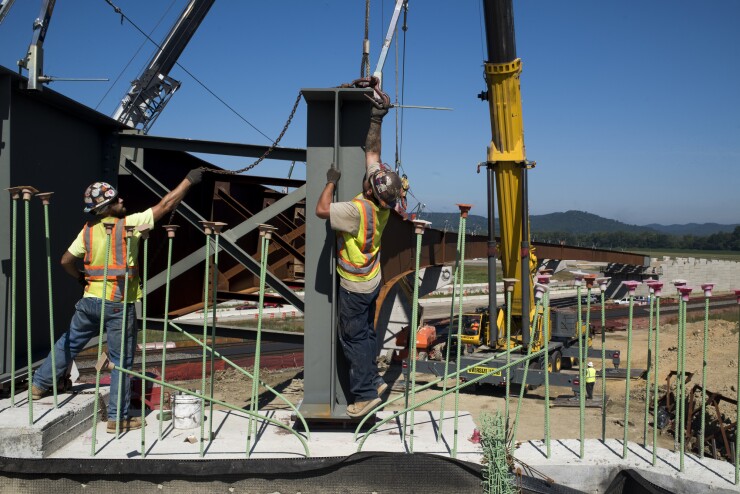WASHINGTON – The Senate Appropriations Committee unanimously passed a bill on Thursday that rejected President Trump’s proposed cuts and instead would appropriate more funds in fiscal 2019 for transportation and economic development programs that are important to the municipal bond market as well as state and local governments.
The bill, approved by a vote of 31 to 0, would allocate a total of $71.4 billion in discretionary funding for the departments of Transportation, Housing and Urban Development, and related agencies -- $1.1 billion or 1.6% above the level enacted in fiscal 2018 and $23.42 billion more than Trump’s budget request. This compares with $71.8 billion the House Appropriations Committee approved by a vote of 34 to 17 on May 23.

The Senate committee bill would allow $46 billion from the Highway Trust Fund (HTF) and another $3.3 billion from general funds to be used for the federal-aid highways program, including $800 million for bridge repairs. The House committee bill also allocated the $46 billion from the HTF, but added another $4.25 billion in general funds.
The HTF is supported by fuels taxes and serves as the main source of highway and transit grants to state and local governments, but it has given out more revenue than it has obtained in recent years and is estimated to become insolvent in 2020.
The Senate panel’s bill would appropriate $1 billion for the popular Transportation Investment Generating Economic Recovery grant program, rejecting Trump’s proposal to eliminate funding altogether for these grants, which are sometimes used in conjunction with bonds. The $1 billion appropriation is $500 million below the fiscal year 2018 level, but about $250 million more than approved by the House panel.
TIGER grant program was first authorized by the American Recovery and Reinvestment Act of 2009. The grants are used to fund road, transit and other surface transportation projects that generate economic development and improve access to reliable, safe and affordable transportation for urban and rural communities. They are awarded on a competitive basis for projects that will have a significant impact on the nation, a metropolitan area, or a region.
The grant program is especially interested in innovative projects, including those that are multi-modal and multi-jurisdictional. The federal grants leverage money from state and local governments, private partners, metropolitan planning organizations, ports and transit agencies.
Transit-related activities were appropriated a total of $13.51 billion by the Senate panel. This would be $2.4 billion above the president’s budget request, $33 million above the fiscal year 2018 level but below the $13.6 billon allocated by the House panel. About $2.55 billion would be for capital investment grants (CIG), rejecting the president’s proposal to minimally fund the program at roughly $1 billion for finish existing projects but no new ones.
The CIG program provides funding for new and expanded rapid rail, commuter rail, light rail, streetcars, bus rapid transit, and ferries, as well as corridor-based bus rapid transit investments that emulate the features of rail. There are four categories of eligible projects under the CIG program: New Starts, Small Starts, Core Capacity, and Programs of Interrelated Projects. The New Starts program involves new projects or extensions to systems that have a total estimated capital cost of $300 million or more or that are seeking $100 million or more in CIG funds.
The $2.77 billion appropriated for the Federal Railroad Administration by the Senate panel is $1.76 billion above the president’s budget request, but $323 million below the fiscal 2018 level and also below the $3.2 billion appropriated by the House panel. The Senate panel bill would allocate $255 million for Consolidated Rail Infrastructure and Safety Improvements Grants, $300 million for the Federal-State Partnership for State-of-Good-Repair, and $10 million for Restoration and Enhancement Grants.
Both the House and Senate committees rejected the president’s proposals to eliminate the Community Development Block Grant program at HUD. They each appropriated $3.3 billion for the program, consistent with the fiscal 2018 level that was enacted.
The CDBG program is more than 40 years old and allocates funds to more than 7,000 urban, suburban, and rural communities on a formula basis that can be used for affordable housing, infrastructure development, anti-poverty initiatives, services to the elderly, and other programs.





